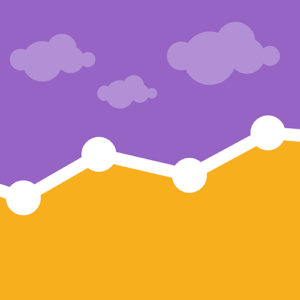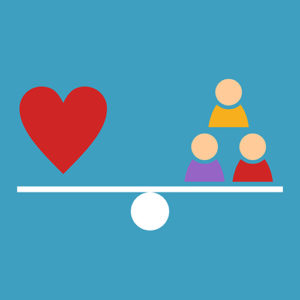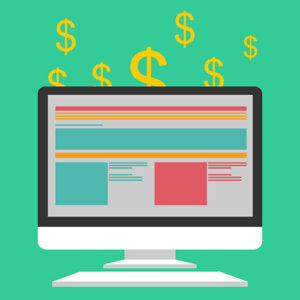Podcast: Play in new window | Download | Embed
Today’s Guest

Leslie Samuel quit his job to become a full time blogger and to spend time with his family. He also runs a podcast and leads a community of future bloggers.
This is the 72nd session of Smart Brand Marketing.
I have a love/hate relation with blogging.
One one side a website does need good content in order to rank it. Some of the biggest wins we get for clients is through fixing the internal site issues and getting the articles in order.
On the other side I believe that starting a blog is one of the fastest way to go broke online. There are a lot of reasons for why this happens and we do address all of that in the episode.
This was my favorite episode recorded this month and as you will hear… things got a bit heated 🙂
For a blog to succeed have a product or service before starting out. If you don’t have one, find a pain point and create a service or product behind it. Then write the articles specifically for your clients. Doing it the other way around (blogging for traffic without anything to sell) is a sure way to fail.
What are you waiting for…. press play
TOPICS DISCUSSED
- Why should anyone start blogging?
- Choosing the right audience
- Choosing the right business model
- Quality content
- Why case studies work
- Who shouldn’t blog
- How to monetize a blog
- Calendar content plan
- What happens to your blog when you take a year off?
- Leslie’s most engaging article
How to Step into the World of Blogging
Ideas
Everybody in the world has one and would like to share it to anyone who’s asking for it. Conversely, it can help you turn a rather healthy profit if you offer your ideas as solutions to problems that people are looking answers for in the online world.
Fortunately for you, the Internet does provide you with a number of channels to turn your ideas into a somewhat tangible product of sorts or, better yet, make a complete business out of.
One of these you might have heard of is blogging and there are countless success stories of people creating sustainable careers just be merely blogging their ideas, solutions, and etc.
But this does pose a question “Is Blogging for Me?” To answer this question, you must look at a few things about blogging from an insider’s perspective first.
Making it Successful is not as Fast as You Think
First things first, the most successful blogs out there are not overnight successes. There is no such thing as a blog that can cause more than a million people to subscribe within a span of a year unless a.) the person running it is popular already or b.) those leads are not naturally generated (which is not okay by SEO standards, too).

This is where the myth of blogging being a “slow” online business model since they are not getting the results they expected. This infographic here (Source: https://www.woblogger.com/get-more-blog-subscribers-infographic/) should explain how you can get more subscribers to a blog but be warned: there is no exact science to determine how much people should subscribe to your blog on a monthly basis but a decently sized one that creates enough engaging content regularly should be netting in somewhere in between 300 to 400 subscribes every 60 months.
In a year, you should be able to have at least 4,000 subscribers which should be enough for your blog to get noticed by the search engines. Be consistent with your content and you can get started noticed by more and more people by a year.
Should You Find a Niche?
One of the advice you might have often run into is to never do what the other bloggers are doing. Basically, you have to find a niche. The only problem with that is what you think is a very specific demographic to cater to is actually just as broad as the market it’s part of. Basically, you are limiting the blog’s reach in all the wrong places.
Think of it this way, your blog is going to earn money for you by the number of views its contents have. In recent times, especially with AdSense’s policies, that is not much especially if you only cater to a very specific taste. For example, travel blogs that cater to 20-something year old women is going to have a very limited reach to more expansive travel blogs since, well, they’re blogs that cater to 20-something year old women which, by itself, is a very broad demographic. It’s hard to get traction for that.
To remedy this, it is best that you shift your focus from finding a niche to finding a specialization that should address a specific need in your audience without alienating the rest. This infographic (source: https://nichehacks.com/infographic-niches/) points out how you can find your own specialization to stand out from the market.
Let’s take our example a moment ago and refine it. From a travel blog that caters only to young women, you can turn your travel blog into one that specializes in food trips, shopping districts, thrill-seeking activities, soul-searching, and whatnot. From a perspective that focuses on demographic, your blog now focuses on answering a certain question which is far more sustainable in the long run.
Building Traffic

Making a blog successful can be quite a challenge if you don’t build enough traffic for it. This is where a lot of aspiring bloggers fail as their blogs have nothing to sell which meant that viewership steadily dropped by the months that followed after their blogs were set up. As a matter of fact, even the best blogs don’t get results within a few months after being set up.
This might sound a bit counterproductive but if you want to become a blogger, don’t do blogging just yet. (And cue the resounding “what?!” across the world right now).
To make your blog even more sustainable, you must base it around a product or service. To make this easier on your part, there are a few things that you should remember
- Create a landing page. This is where your blog should be linked to which should consolidate all traffic coming from your different online platforms.
- Look for affiliates. Again, the goal here is to draw in more traffic to your blog which in turn should increase your profit from it.
However, just keep in mind that neither of these strategies will lead to instant growth for your blog. It would still depend on the content that you are generating and the way you manage the entire thing. Think of it this way, your strategies for building traffic for your blog can help a lot if only to make sure that it is frequented by a lot of people for as long as possible.
Blogging: Business or Not?

So if you need to have something to sell to make your blog effective, does this mean that blogging is a business? The answer is a yes and a no. You don’t need to have a business to start blogging and you don’t need to blog if you have a business.
Look at it this way. There are a number of successful blogs out there that do not offer a service or sell products. The way their users treat them is as platforms for their ideas. In other words, blogging for them is merely a means for them to translate their ideas into something readable with the hope that it resonates to people. They can reach to a thousand people every hour with their blog and still not make money.
On the flip side, you would be hard pressed to find a big company to have their own personal blogs because they have other effective means to sell their products and services online. If they do have a blog, it is mostly as a means to connect with their potential audience at a more personal level. In some cases, the blog is even included in the main website which means business blogging is rarely a standalone project.
But if you do base your blog around products and services, then you need to identify a few things first.
- What kind of people do you want your blog to be catered to? Who are you going to sell your blog to? Who are you trying to reach?
- What are their goals? What problems do you think they want solutions for?
Answering this will determine the kind of content you will be creating for the blog.
What is Quality Content?
Search engines tend to change the definition of what quality content is from time to time so there is no definite, all-time answer to this. However, what quality content does remains the same. Basically, quality content:
- Solves a problem
- Provides value to a person looking for it
- Optimized for the Search Engines
- Properly linked to other existing content
As for the template, there is no standard for it; at least one that remains the same in every search engine. You can go for a fully visual one or something that is a mixture of text, imagery, and videos.
The goal here is to make content that the various search engines like Google would find to be effective. To make this easier on your part, you need to constantly update your knowledge of current Search Engine standards when it comes to content. If you know what the algorithms want, you can easily reformat your content that gives the search engine the information that they find to be most relevant.
Consistency Counts
Once you have determined what makes quality content, the challenge then is to find out how often you should make quality content. Remember that search engines like Google love consistency and audiences engage more with platforms that create content on a regular basis.
So does this mean that your blog should be updated on a daily basis? Not really. For the sake of consistency, you should publish new content at least once a week and at the same time and at the same day. This gives your audience the assurance that they can count on you to publish new content for them to consume without having to second-guess when the next blog’s going to pop up.
Finding a Balance

So what if you just want to blog because you are passionate about something? Keep in mind that what you are passionate of is not exactly what other people would find to be interesting. This can lead to a dilemma since you want to share solutions to topics that you are passionate about while still also providing for what people are looking for.
Does this mean that building a blog out of your passion and still earning money from it is impossible? Is being passionate and profitable two things that cannot agree with each other? NO. It all goes back to finding your niche or specialization in the market.
Take what you are passionate about and then come up with the various problems you think people are looking answers for regarding that topic. With this, you can create a very specific niche that you can target while still providing content for the rest of your audience. This way, you can maximize your reach in the Internet while not necessarily making feel any demographic left out.
Monetizing the Blog

So how do we get about earning from blogging? There’s a number of ways to do this but only two are recommended for beginners.
- Ads – Advertising in your blog can be great if there is a considerate amount of traffic already going through it. This is because advertisers earn money online through every time their ads start playing on a page. Of course, you also earn a considerable percentage from the ads so the more ads you allow to show on the blog, the more income you can gain from it.
The only downside is that it can be distracting to your viewers which might just affect overall engagement with the blog. Basically, going overboard with any ads that pop-up in the middle of your blog and your viewership might start to drop unless you correct it. - Affiliate Marketing – If you have a product or service, you can have it linked through your blog as a complement. For example, if your blog talks about a certain issue or problem and your product/service can be a solution for it, you can have it linked to your blog post. If you are quite creative, you can have the promotion naturally embedded within your blog post without it standing out like a sore, sales-centric, thumb.
If you are not quite sure as to how much you should charge for your products and services, you can look at other blogs that also use affiliate marketing and see how much they charge for what they offer. You must gauge how your audience responds to the marketing and adjust your approach from there accordingly.
The Bottom Line
So, is blogging for you? The only one that can answer that question is, well, you. It does have its ups and downs and there are some technical aspects in blogging that can confuse the hell out of anyone not used to these processes.
However, does blogging fit you? If you have the patience to build a brand around your passion without looking for a quick way to earn cash and are in it for the long-term, blogging can be the ideal platform for you.
With the right timing and consistency, you might just create the post that will people will like the most, gets shared the most, and entices more people to come in and subscribe to your blog.
And the rest, as they say, will be history.
Have you tried stepping into the world of blogging? What other challenges and rewards do you think await those who would want to start their own blogging careers? Let us know in the comments!
References:
https://nichehacks.com/infographic-niches
https://www.becomingminimalist.com/15-reasons-i-think-you-should-blog/
https://problogger.com/start-a-blog-in-2018/
LESLIE IN ACTION
THANK YOU FOR LISTENING!
To get more SBM content sent directly to your device as they become available, you can subscribe on iTunes or Stitcher!
Also, reviews on iTunes are extremely helpful and greatly appreciated! I read each and every one of them, and feel free to share your URL there so I can contact you later on and say thanks!
If you enjoyed this episode you may also love listening to:


